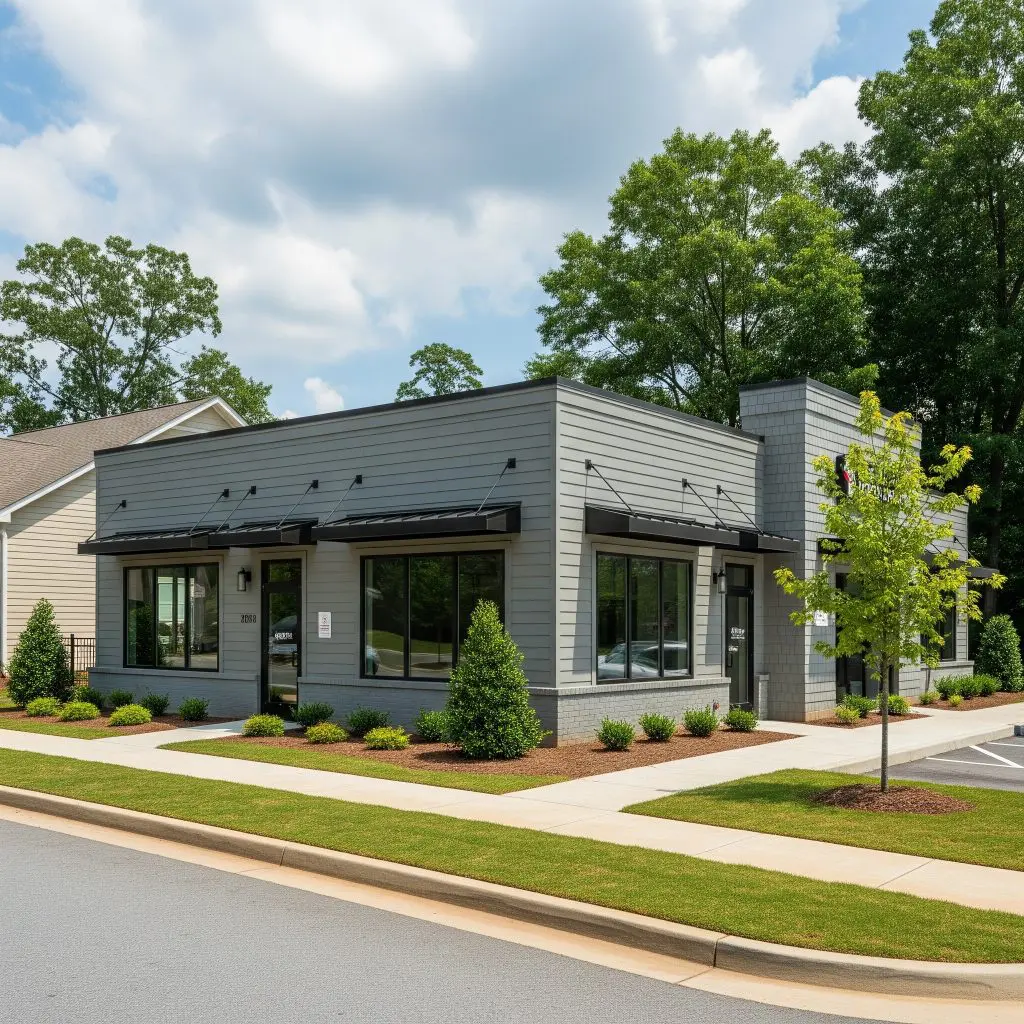Small Business Loans in Maryland: Complete 2025 Guide for Entrepreneurs
Securing the right financing is vital for small businesses to thrive and expand in Maryland’s dynamic market. As we enter 2025, entrepreneurs in cities like Baltimore, Silver Spring, Frederick, Annapolis, Columbia, Rockville, Gaithersburg, and Salisbury have access to a range of tailored loan solutions. This exhaustive guide explores working capital loans: what they are, how they can boost your Maryland business, local lender options, and how to position your application for success.
- Small Business Loans in Maryland: Complete 2025 Guide for Entrepreneurs
- Why Choose Working Capital Loans in Maryland?
- Maryland Small Business Funding Landscape in 2025
- Top Maryland Lenders for Working Capital Loans (2025)
- Types of Working Capital Loans in Maryland
- Eligibility Requirements in 2025
- Step-by-Step: Applying for a Working Capital Loan in Maryland
- Success Stories: Maryland Working Capital Loan Recipients in 2025
- Maryland Working Capital Loan Rates and Terms (2025 Update)
- Tips for Maryland Entrepreneurs to Maximize Approval Odds
- Conclusion: Powering Maryland Small Businesses in 2025
Why Choose Working Capital Loans in Maryland?
Working capital loans are short-term financing solutions designed to cover day-to-day operational needs, manage cash flow gaps, and support growth opportunities. Unlike term loans, which are geared toward long-term investments, working capital loans help Maryland businesses:

- Meet payroll and rent during off-peak seasons
- Purchase inventory ahead of busy periods (such as Maryland’s summer tourist influx or the busy federal contracting cycle)
- Maintain operations during economic shifts
- Invest in marketing, staffing, or technology upgrades quickly
Maryland Small Business Funding Landscape in 2025
With Maryland’s economy rebounding strongly in 2025, especially in biotechnology, federal contracting, tourism, cybersecurity, and hospitality, lenders are actively seeking qualified applicants. Regions seeing robust business activity include:
Need capital? GHC Funding offers flexible funding solutions to support your business growth or real estate projects. Discover fast, reliable financing options today!
Test Your Expertise: The Complexities of the 1031 Exchange

As a sophisticated real estate investor, you understand that the 1031 Exchange is a cornerstone strategy for tax deferral and wealth accumulation. But beyond the basics, the intricacies of the 1031 Exchange rules can pose significant challenges. This quiz is designed to test your in-depth knowledge and highlight critical nuances that separate casual investors from true experts in 1031 Exchange transactions.
Instructions: Choose the best answer for each question.
⚡ Key Flexible Funding Options
GHC Funding everages financing types that prioritize asset value and cash flow over lengthy financial history checks:
-
Bridge Loans: These are short-term loans used to "bridge the gap" between an immediate need for capital and securing permanent financing (like a traditional loan or sale). They are known for fast closing and are often asset-collateralized, making them ideal for time-sensitive real estate acquisitions or value-add projects.
-
DSCR Loans (Debt Service Coverage Ratio): Primarily for real estate investors, these loans are underwritten based on the property's rental income vs. debt obligation ($\text{DSCR} = \text{Net Operating Income} / \text{Total Debt Service}$), not the borrower's personal income or tax returns. This offers flexibility for those with complex finances.
-
SBA Loans: The Small Business Administration (SBA) guarantees loans offered by partner lenders. While providing excellent terms (long repayment, lower rates), the application process is typically slower than private/bridge funding, often making them less suitable for immediate needs. SBA eligibility heavily relies on the DSCR metric for repayment assessment.
🌐 Learn More
For details on GHC Funding's specific products and to start an application, please visit their homepage:
The Ultimate DSCR Loan for Rental Property Quiz

Are you looking to expand your real estate investment portfolio? A DSCR loan might be the perfect tool to help you achieve your goals without relying on traditional income documentation. Test your knowledge with this quiz to see if you're ready to master the intricacies of a DSCR loan for rental property.
- Baltimore – Port-driven industries, health care, and tech startups
- Silver Spring & Rockville – Government contractors and professional services
- Frederick – Life sciences, craft breweries, and logistics businesses
- Columbia – Tech firms, consulting, and e-commerce
- Annapolis – Tourism, hospitality, and maritime-related ventures
- Gaithersburg – Biotech, manufacturing, and distribution
- Salisbury – Agriculture, food processing, and retail
Recent Maryland incentives and programs (such as TEDCO’s ongoing support for tech innovation and the Maryland Small Business COVID-19 Emergency Relief Loan Fund updates) continue to improve access to flexible working capital financing.
Top Maryland Lenders for Working Capital Loans (2025)
- Sandy Spring Bank – A leading local bank offering customized working capital loans for Maryland businesses, fast approvals, and local decision-making.
- M&T Bank – With deep roots in the state, M&T Bank serves small business clients with competitive rates and a variety of flexible lines of credit options.
- Howard Bank – Focuses on Maryland-based businesses with relationship-driven lending and short-term working capital products.
- Accion Opportunity Fund – National nonprofit lender active in Maryland, known for microloans and working capital up to $250,000, with a focus on women and minority-owned businesses.
- Lendistry – A fintech lender specializing in fast-working capital approvals for Maryland companies in under one business day.
- Fulton Bank – Offers both traditional working capital lines and digital application options for Maryland-based startups and established firms.
Types of Working Capital Loans in Maryland
- Lines of Credit – Revolving access to funds up to a set limit; interest paid only on amounts used, ideal for variable cash flow needs.
- Short-Term Loans – Lump-sum disbursements, typically repaid within 18 months. Best for covering large, one-time expenses.
- Invoice Financing – Unlocks cash tied up in outstanding invoices, a popular option for Maryland’s B2B contractors.
- Merchant Cash Advances – Suited for retail and hospitality in Annapolis, Baltimore, and Salisbury, where sales fluctuate seasonally.
Eligibility Requirements in 2025
Though qualifications vary by lender, Maryland entrepreneurs typically need:
- Established business entity (LLC, S-Corp, etc.)
- Minimum 1 year in business, though some lenders accept startups with strong revenue
- Annual revenues of $100,000+ (flexible for microloans or online lenders)
- Personal credit score of 600+ (some lenders go as low as 580, higher for bank loans)
- Maryland business license and banking records
Step-by-Step: Applying for a Working Capital Loan in Maryland
- Assess Your Needs: Calculate how much capital is required for your specific operational purpose (inventory, staffing, marketing, rent, etc.).
- Compare Lenders: Research banks and online lenders above. Compare terms, rates, fees, and customer service quality.
- Gather Documentation: Prepare business license, 3–6 months of bank statements, tax returns (business and personal), current debt obligations, and a brief business plan.
- Apply Online or In-Branch: Visit the lender’s digital portal or Maryland branch. Upload documents and complete the application form, specifying loan purpose and requested amount.
- Review Approval & Offer: Lender will run a credit check, underwrite the application, and send a loan offer. Review APR, fees, and payback terms.
- Sign Agreement: Once accepted, sign closing documents electronically (in less than 2 days with most Maryland lenders).
- Receive Funding: Funds are typically deposited within 1–3 business days of final approval, depending on lender and loan type.
Success Stories: Maryland Working Capital Loan Recipients in 2025
- Baltimore Retailer: A small bookstore in Fells Point used a $75,000 line of credit from Sandy Spring Bank to boost inventory before a major downtown festival. Result: 25% sales growth, repaid over 13 months at 8.4% APR.
- Frederick Tech Startup: Secured a $120,000 18-month working capital loan from Lendistry to bridge cash flow while completing a major government contract. This allowed them to meet payroll and fulfill orders, with flexible weekly payments at 11.2% APR.
- Annapolis Restaurant: A family-owned seafood eatery accessed a $60,000 merchant cash advance through M&T Bank in under 48 hours, using future credit card sales to repay over 9 months. Enabled them to launch a seasonal menu and hire new staff before tourist season.
- Silver Spring Salon: A startup beauty salon, operational for 9 months, qualified for a $25,000 microloan with Accion Opportunity Fund, supporting supplies and local marketing. Simple documentation and a fast turnaround made a critical difference for their growth trajectory.
Maryland Working Capital Loan Rates and Terms (2025 Update)
✅ Small Business Resources
-
SBA – Small Business Administration
https://www.sba.gov - SCORE Mentors (Free Mentoring & Workshops)
https://www.score.org - Small Business Development Centers (SBDC)
https://americassbdc.org
Are You an SBA Real Estate Loan Expert?

Test your in-depth knowledge on using SBA Loans for owner-occupied commercial Real Estate acquisition. These questions delve into the critical details that can impact your business's growth and financial strategy.
Maryland’s 2025 business lending landscape remains competitive, with local bank offers typically ranging from 7.0%–12.5% APR for working capital loans and lines of credit. Online and fintech lenders average 9.5%–17.8% depending on risk and collateral. Loan amounts usually range $10,000–$500,000, with repayment terms from 6–24 months. No prepayment penalties and rapid digital processing are increasingly standard.
Tips for Maryland Entrepreneurs to Maximize Approval Odds
- Maintain a strong cash flow record—demonstrate your ability to handle new debt.
- Keep business and personal credit healthy—pay bills and debts on time; Maryland lenders check both.
- Create a concise business plan with financial forecasts showing loan use and projected ROI.
- Demonstrate local market knowledge—highlight Maryland-specific trends supporting your application.
- Seek out lender relationships—community banks in Maryland often favor loyal local clients.
Conclusion: Powering Maryland Small Businesses in 2025
✅ Real Estate Investor Resources
-
AirDNA (Short-Term Rental Data)
https://www.airdna.co - Rentometer (Rent Comps)
https://www.rentometer.com - Zillow Research & Data
https://www.zillow.com/research
DSCR Loan IQ Quiz!

Test your knowledge of Debt Service Coverage Ratio (DSCR) loans!
With Maryland’s diverse economy and rich entrepreneurial support system, working capital loans provide a practical route for thousands of local businesses to grow, adapt, and thrive amid 2025’s evolving opportunities. Whether you run a startup in Rockville, a manufacturer in Gaithersburg, or a retail shop in Annapolis, explore your working capital options today by consulting the lenders above and using this guide to prepare your application for success.
Disclaimer: This guide is informational and not legal or financial advice. Always compare your options with a licensed Maryland lending advisor.
Get a No Obligation Quote Today.



